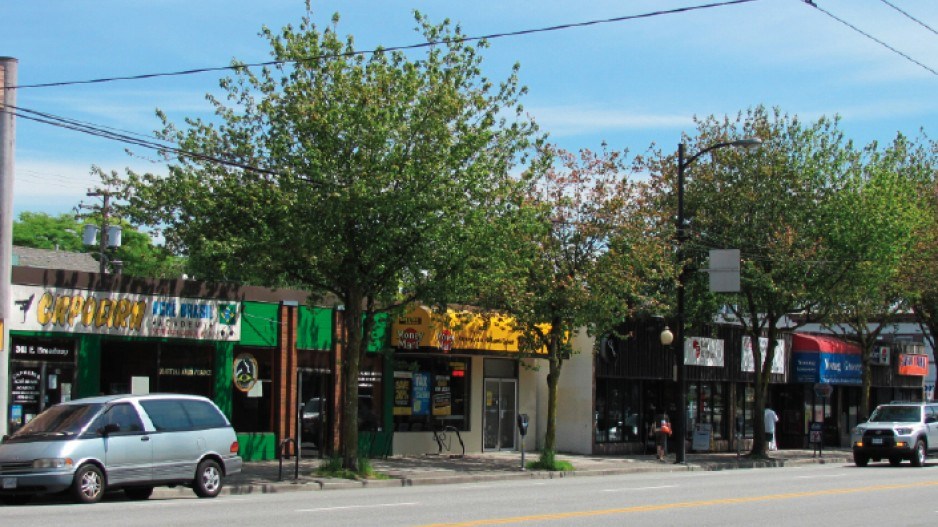Taxing changes
Vancouver ended its rebalanc ing of the distribution of the property tax burden between residential and non-residential property owners this spring, but fresh concern is sprouting as planning and redevelopment activities pick up across the city.
“It’s definitely going to be an increasing issue,” saidApproximately 75% of commercial properties in Vancouver have a speculative value in excess of what the properties are currently assessed at, making them vulnerable to damaging increases in tax assessments. The outcome is the same, whether spurred by changes in planning policies or market activity. The potential scenarios for Vancouver businesses echo what industrial property owners in Richmond’s Brighouse area experienced when the city designated the neighbourhood for residential development.
Richmond sought and achieved a tax break for landowners, but Vancouver and other municipalities have not sought similar legislation to assist their commercial property owners facing similar circumstances.
Some of the areas where commercial properties and their tax-paying tenants will face the greatest squeeze include West Broadway, where properties are typically assessed at $185 per buildable square foot.
But, pointing to the recent sale of the
And, should sale prices at Mosaic’s development reflect strong demand, they’ll confirm a high valuation for other potential development sites in the area.
“As of this year, 47% of the total property tax load is being paid by 7% of the properties,” Sullivan said in a recent note to clients. “We have a ... diminishing number of commercial properties and growing municipal budgets. This is not sustainable for our future generations.”
Unaffordable changes
Speaking of unaffordable, the latest
Condos, typically the most affordable, remained the least affected in Vancouver, shifting just 0.3 percentage points to require 44.9% of monthly household income.
And let’s not pretend renting is any easier:
One-bedroom vacancies edged down from 3.1% to 2.6%, driving an overall drop in vacancies to 2.6% in metropolitan Vancouver. Rents now average $1,013 a month, led by one-bedroom rents, which increased 3.3% to $965 a month. •




